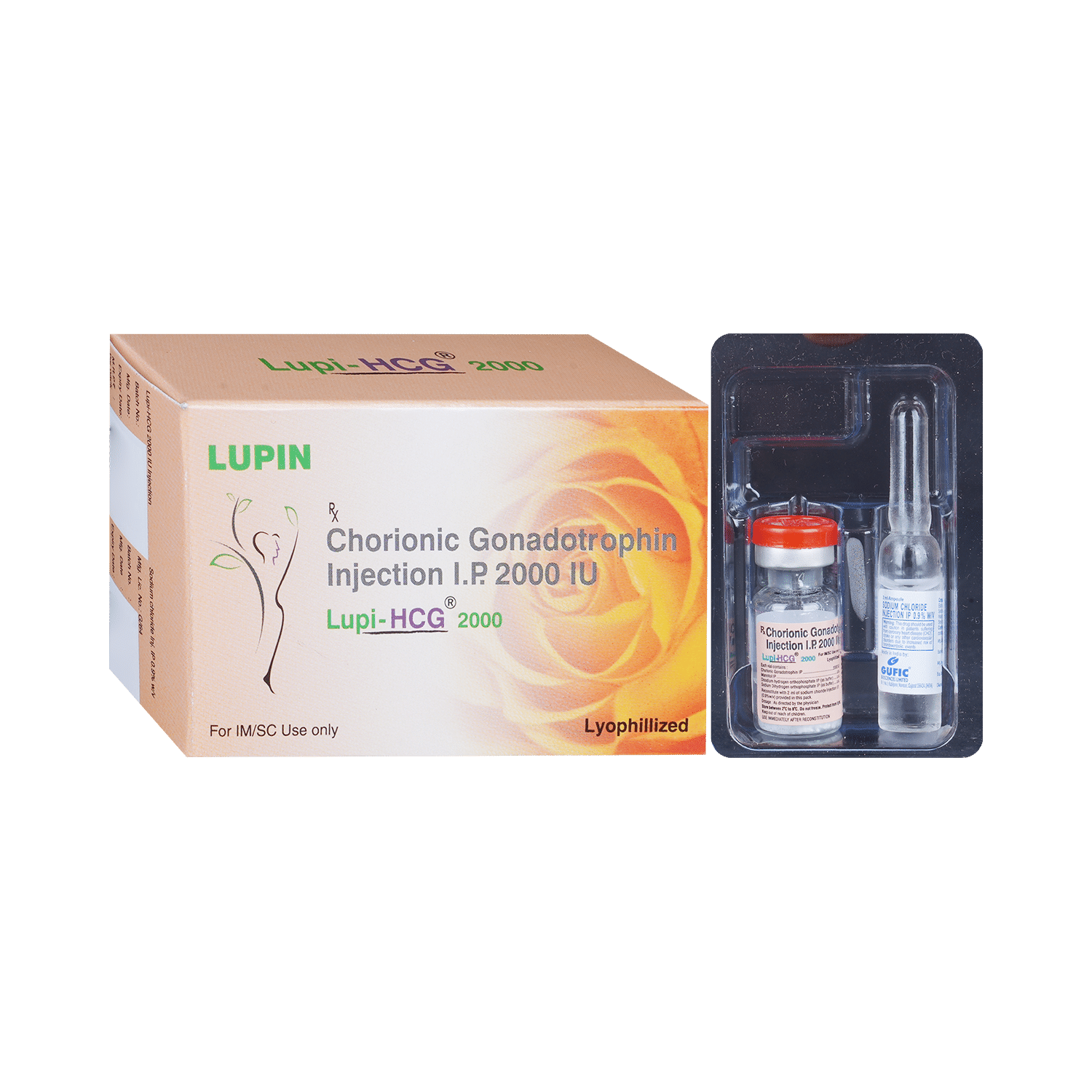
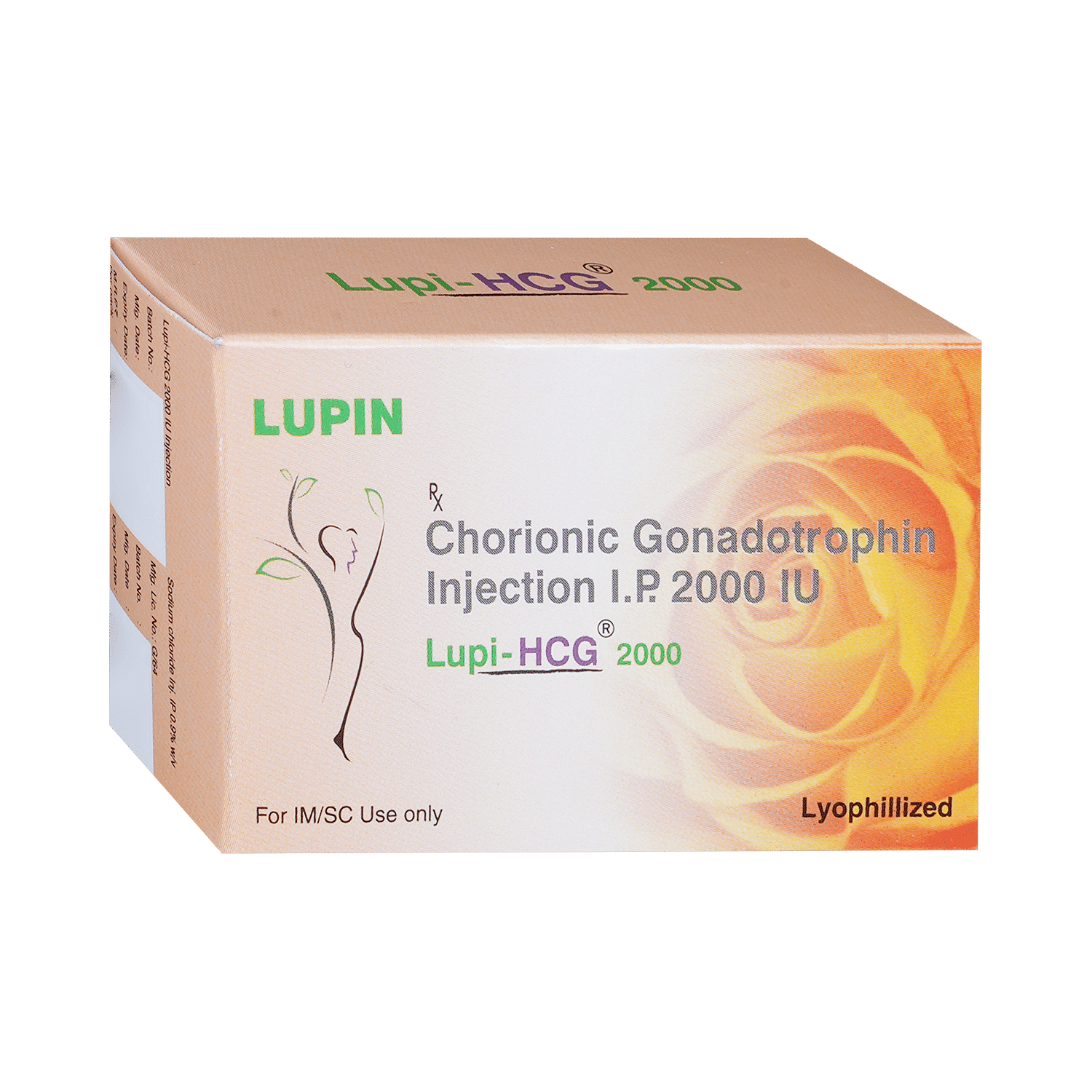
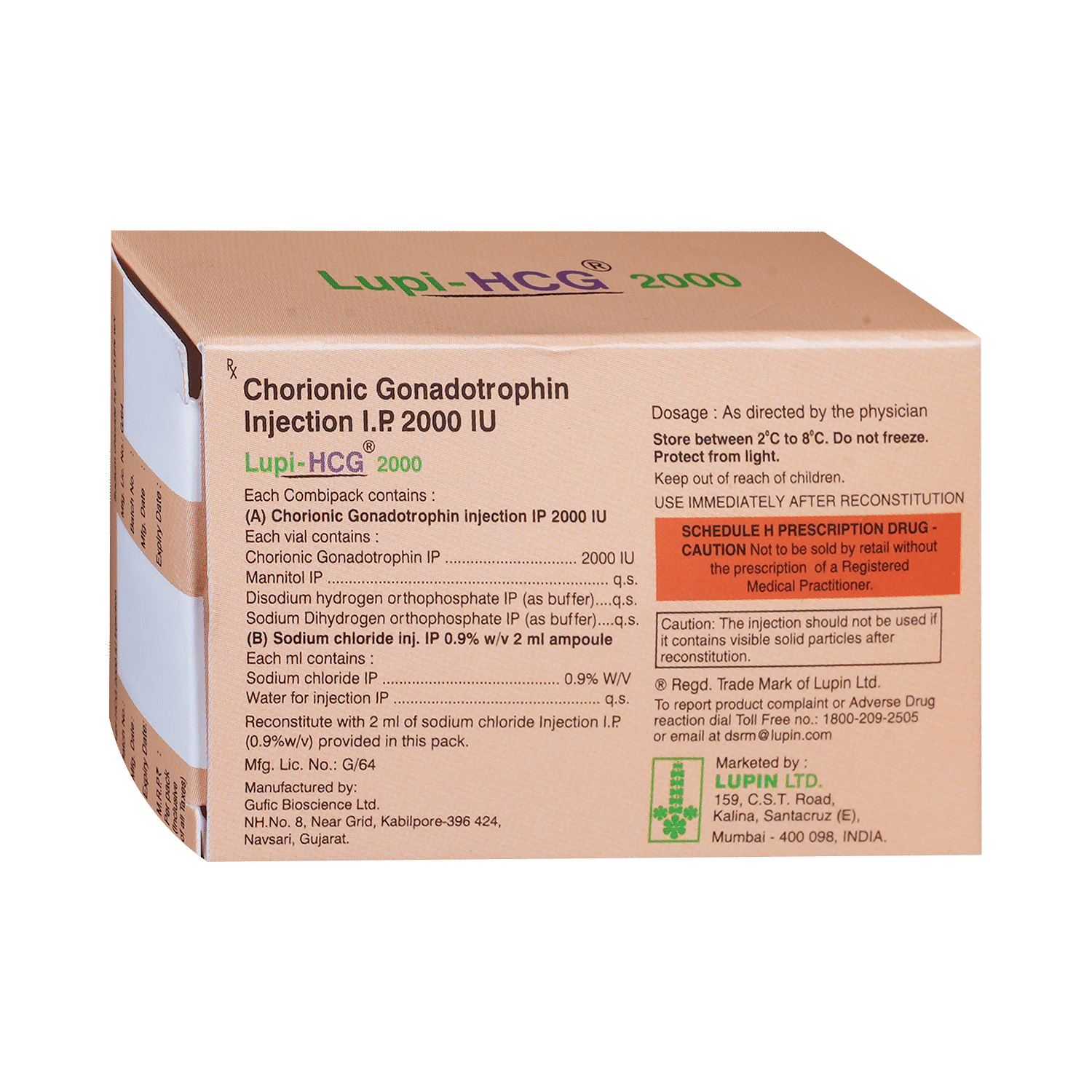
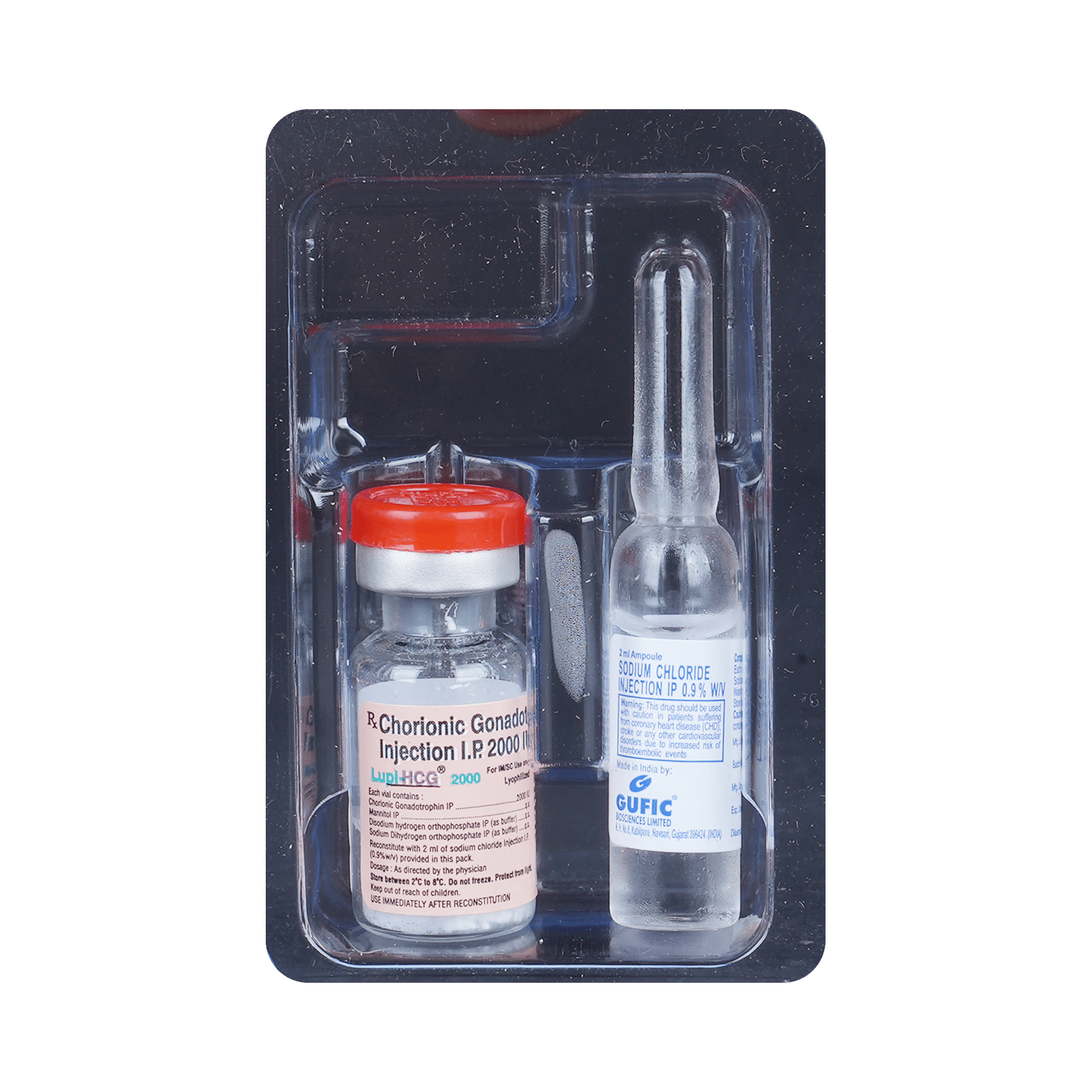
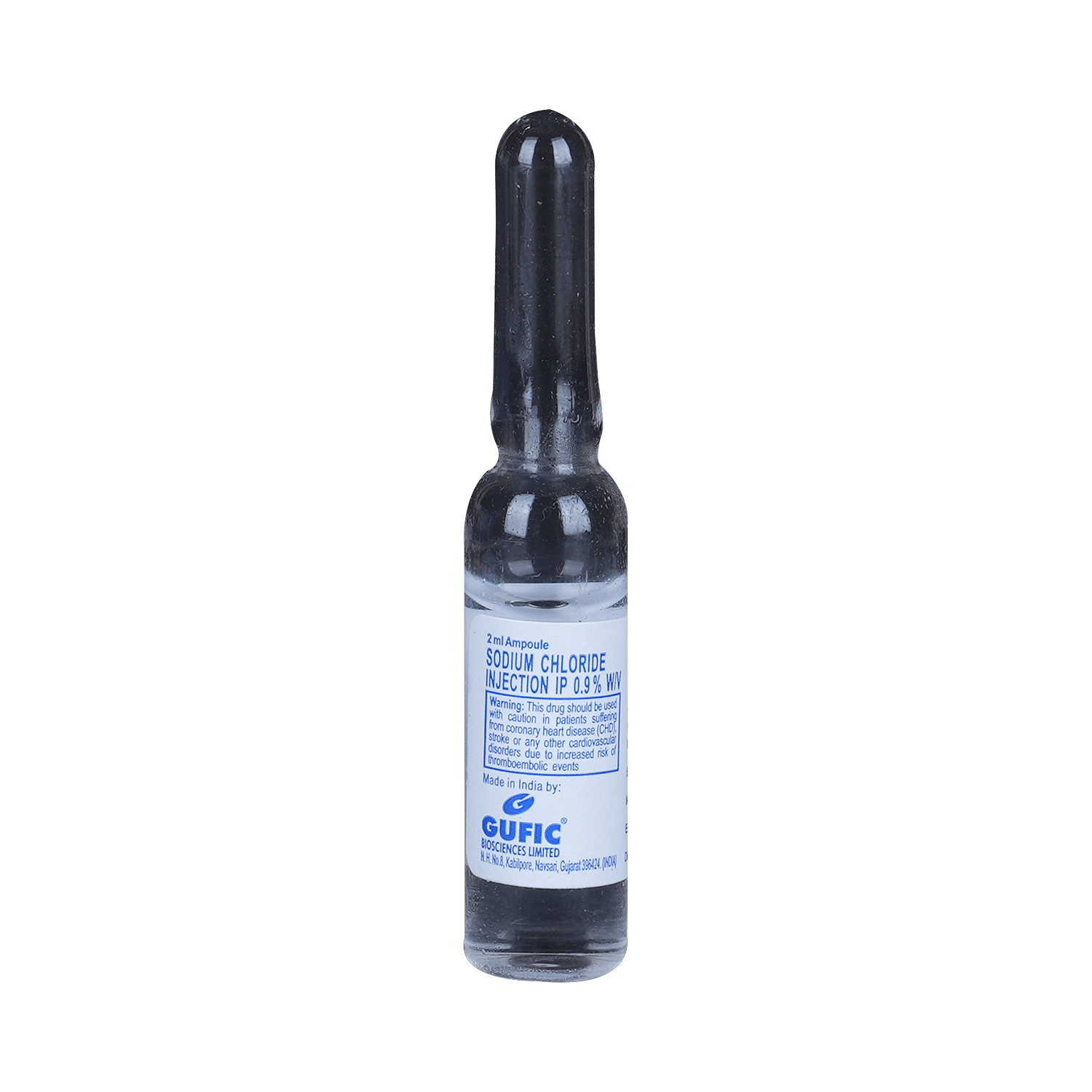
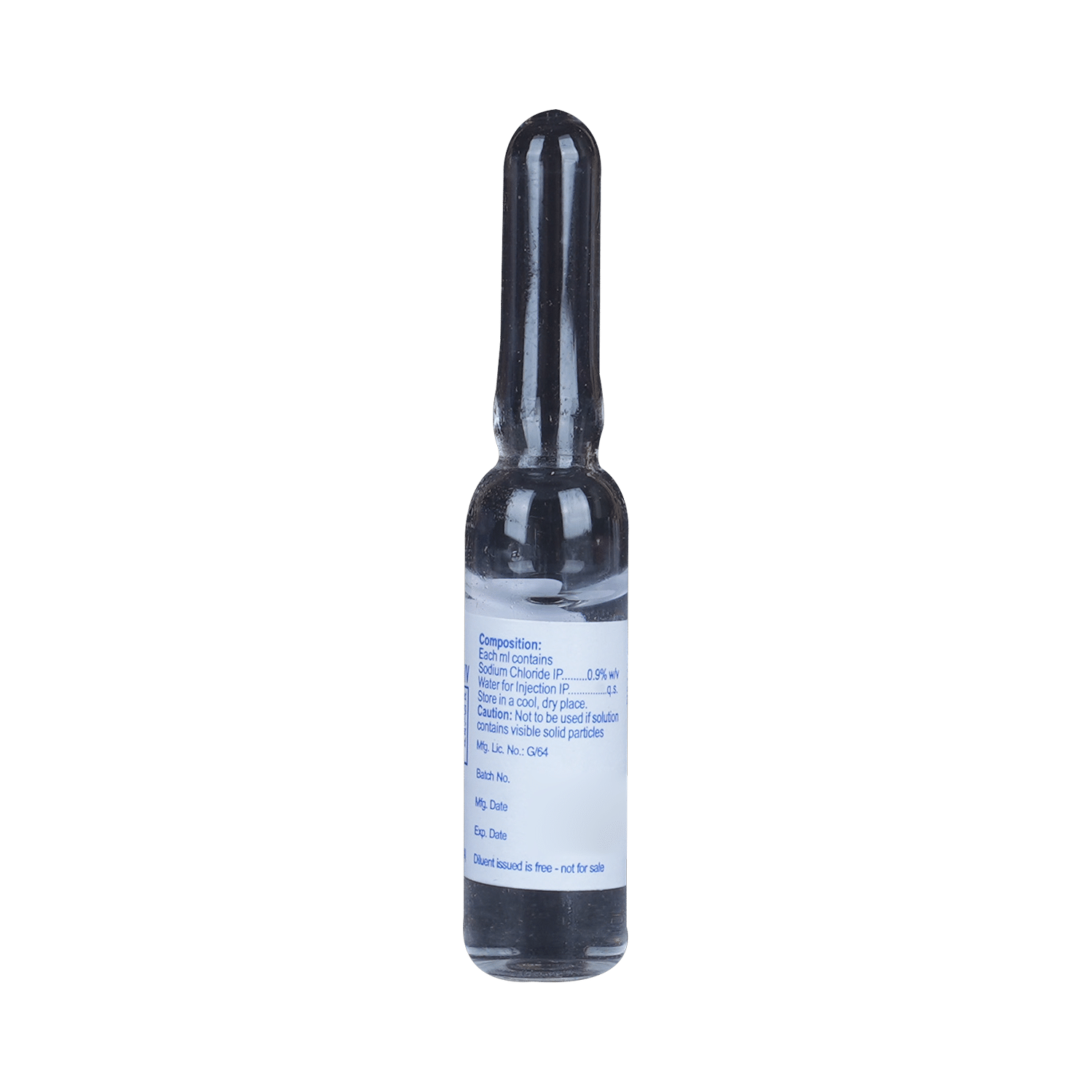
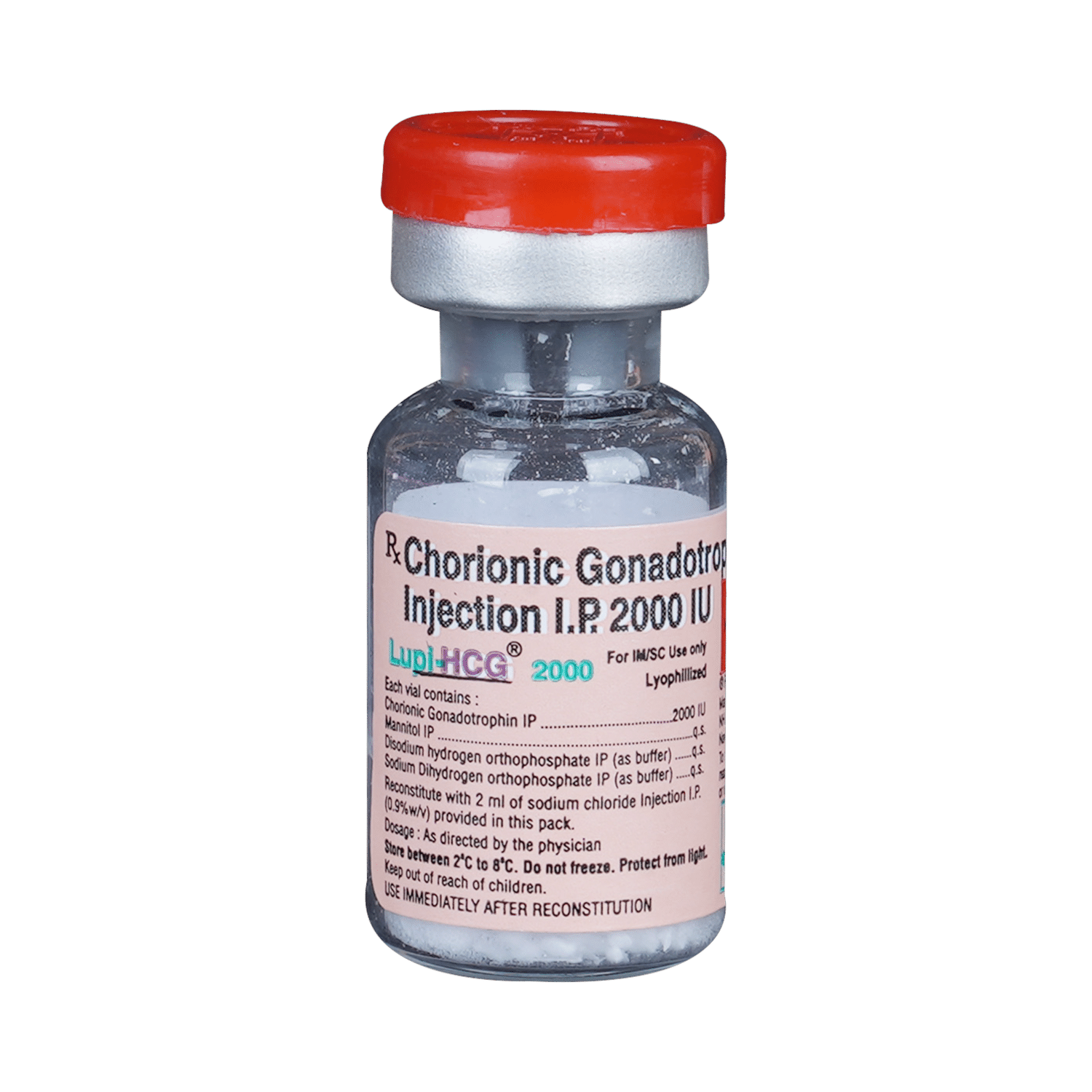
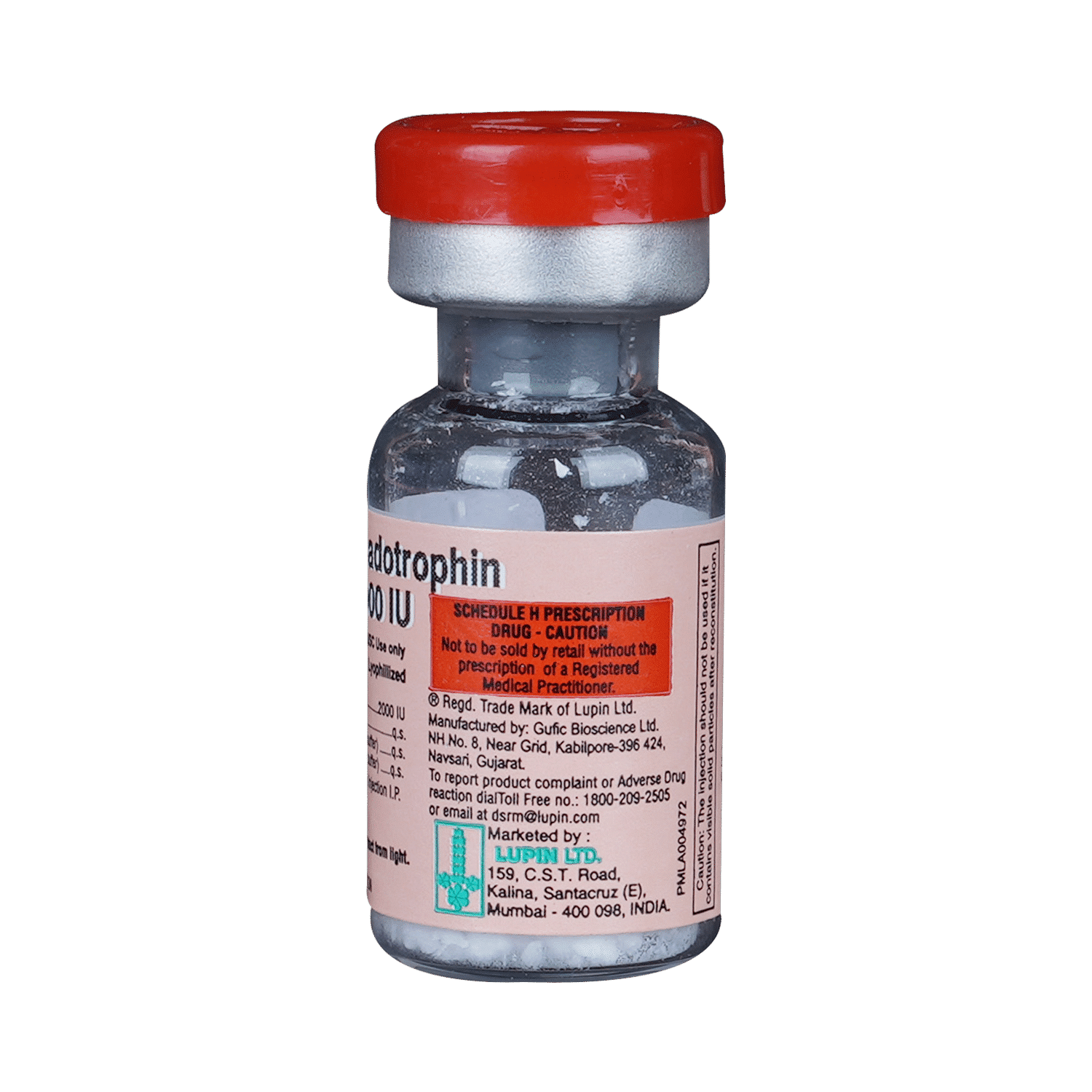
Lupi-HCG 2000 Injection
Manufacturer
Lupin Ltd
Salt Composition
Human chorionic gonadotropin (hCG) (2000IU)
Key Information
Short Description
Lupi-HCG 2000 Injection is used in the treatment of infertility in women and male hypogonadism (delayed puberty, and low sperm count). It works by releasing eggs from the ovary in women and increasing testosterone levels in men.
Dosage Form
Injection
Introduction
Lupi-HCG 2000 Injection is given as an injection under the supervision of a doctor. Your doctor will decide the right time to take the injection, so always follow your doctor's advice. The dose and how often you take it depends on what you are taking it for. You should take this medicine for as long as it is prescribed for you.
Directions for Use
Your doctor or nurse will give you this medicine. Kindly do not self-administer.
How it works
Lupi-HCG 2000 Injection is a sex hormone. In females, it helps in the release of eggs from the ovary. In males, it works by enhancing the production of testosterone which helps in treating conditions such as delayed puberty and low sperm count.
Quick Tips
Lupi-HCG 2000 Injection is used together with another hormone called follicle stimulating hormone (FSH) for the treatment of infertility in women. In men, it is used to help treat delayed puberty, undescended testes or oligospermia (low sperm count). It is given as an injection into a muscle or under the skin. If your ovaries are overstimulated, you should not have sex or use barrier contraception for at least four days. If you experience severe pelvic pain, nausea, vomiting, diarrhea, sudden weight gain, trouble breathing, or decreased or no urination during treatment, inform your doctor immediately.
Frequently asked questions
What is Lupi-HCG 2000 Injection and what is it used for?
Lupi-HCG 2000 Injection contains a hormone called Human Chorionic Gonadotropin (HCG), which is also produced naturally by the body. It is indicated for use in women who have problems with ovulation (the release of an egg). It can also be used in conjunction with other fertility medications to help produce eggs in women undergoing assisted reproductive technology, such as in-vitro fertilization (IVF). In males, it is used to treat conditions like delayed puberty and low sperm cell count.
Is Lupi-HCG 2000 Injection painful?
Pain associated with injections can vary from person to person. Some individuals may experience mild tenderness or tingling at the injection site. However, if you encounter any significant pain following an injection, seek immediate medical advice.
Where do you inject Lupi-HCG 2000 Injection?
Lupi-HCG 2000 Injection is administered by a healthcare professional only. When injected into muscles, the preferred sites are the buttocks or arms. For subcutaneous injections, it can be given using a pinch of skin from the abdomen or front thigh.
Are there any chances of twins when treated with Lupi-HCG 2000 Injection?
Using Lupi-HCG 2000 Injection for infertility can increase the chances of multiple pregnancies. Women often develop twin pregnancy during treatment for this reason. Consult your doctor to discuss any concerns and follow their instructions.
Why do doctors suggest Lupi-HCG 2000 Injection injections for pregnancy?
Lupi-HCG 2000 Injection works as a hormone that aids in pregnancy by promoting normal egg development and ovulation. While it is used to treat infertility, it can also be prescribed for women with low sperm count. This medication should not be administered during pregnancy.
Do Lupi-HCG 2000 Injection injections cause breast tenderness?
Yes, Lupi-HCG 2000 Injection may cause breast pain and enlargement in some individuals. This side effect is not common. It's important to contact your doctor if you experience any unusual discomfort or adverse effects from the medication.
What is Lupi-HCG 2000 Injection and what is it used for?
Lupi-HCG 2000 Injection contains a hormone called Human Chorionic Gonadotropin (HCG), which is also naturally produced by the body. It is indicated for use in women who have problems with ovulation, as well as to help produce eggs in women undergoing assisted reproductive technology (ART) procedures such as in-vitro fertilization (IVF). In males, it is used to treat conditions like delayed puberty and low sperm cell count.


